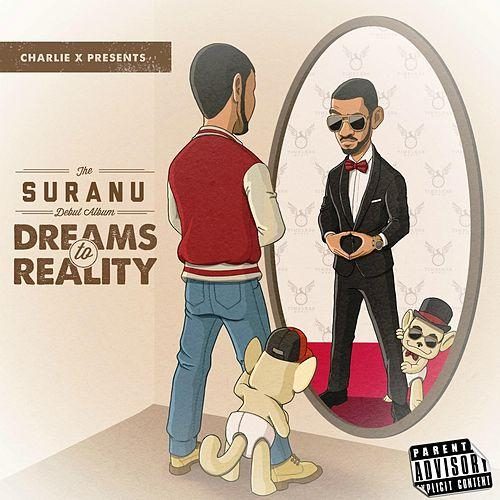Kaduna and Jos are the Mecca and Medina of Nigerian hip-hop – some of your favorite MCs got their start in either of those cities, some of your favorite MCs got their start in both of those cities. Feel free to add “English-speaking” anywhere you feel like.
When a young MC emerges out of KD or J-town, two things happen – the first is that hip-hop heads listen, the second is that, when hip-hop heads do listen, they hold them to a high standard because of the bloodline.
Suranu is an MC from Jos, and we know that much because he doesn’t hesitate to let us know. On “Streets” he talks about his plans to emulate J-town greats Ice Prince and Jesse Jagz on his own path to rap greatness. With a call and response chorus, the track creates a multi-level conversation that includes Suranu and his posse. This approach to making records belongs to another time, a time that predates even some of the Jos MC’s Suranu looks up to. Thankfully, the entire album isn’t stuck in 90’s hip-hop. Suranu might be underground right now but his music has a mainstream appeal.
Tin city inspires even more on the project, an entire song was dedicated to addressing the frequent flashes of violence around the place. It breaks my heart to say this but unlike the style he used on “Streets”, the message on the poignant “Drop the Guns” won’t become obsolete. Jos is a city that rests perpetually on a knife-edge, the time difference between calm and chaos is usually a split second. At first, you might think Suranu is advocating for peace and a laying down of arms on all sides, but the MC throws you off when he promises to end the life of whomever he has a “problem” with. The record is well-crafted but it walks a tightrope between peace, self-defense and aggression.
Suranu might be from Jos, and sometimes he garnishes his bars with a little bit of Hausa (Hands Down) to be more relatable, but by collecting hailings from all 3 major tribes and placing them as interludes, the young MC wants you to know he’s pan-Nigerian also. He makes a halfhearted attempt to show pan-Africanism as well on “Charlie, What Dei Happen” as he hails back in Ghanaian pidgin. I’m assuming that’s a dual reference to Charlie X, who EP’d the project. Speaking of duality, on the surface, DTR appears to be a thought-provoking record about reaching for the stars but keeping one’s feet on the ground while doing so, but there’s a balance.
So, for every cautionary tale such as the jazzy “Dreams About Bentleys” that embodies DTR’s central theme, there’s a crunk-inspired “Abu Dhabi Alhaji” from the overgenerous 17 songs left, that doesn’t care for all that depth and modesty. Actually I lied, the ratio is a pretty disappointing 1:2 and that’s not the only inconsistency. Take “Nagode”, for one – the song is the customary but unnecessary vote of thanks that usually puts a nice bow on the projects of most Nigerian artists, but Suranu goes on to untie that bow and smuggle in the underwhelming “Good life” as the album comes to a double end.
Thankfully though, I can assure you that there’ll be no double end to this review. DTR could certainly have been better thought through as a body of work but its individual parts indicate that there’s a lot of musicality, dynamism and depth in Suranu as a rapper. Moreover, in getting one of his idols to help create the project (Jagz), the rapper’s debut album probably didn’t let his rap ancestors down.
Buy/download Suranu’s Dreams to Reality here


